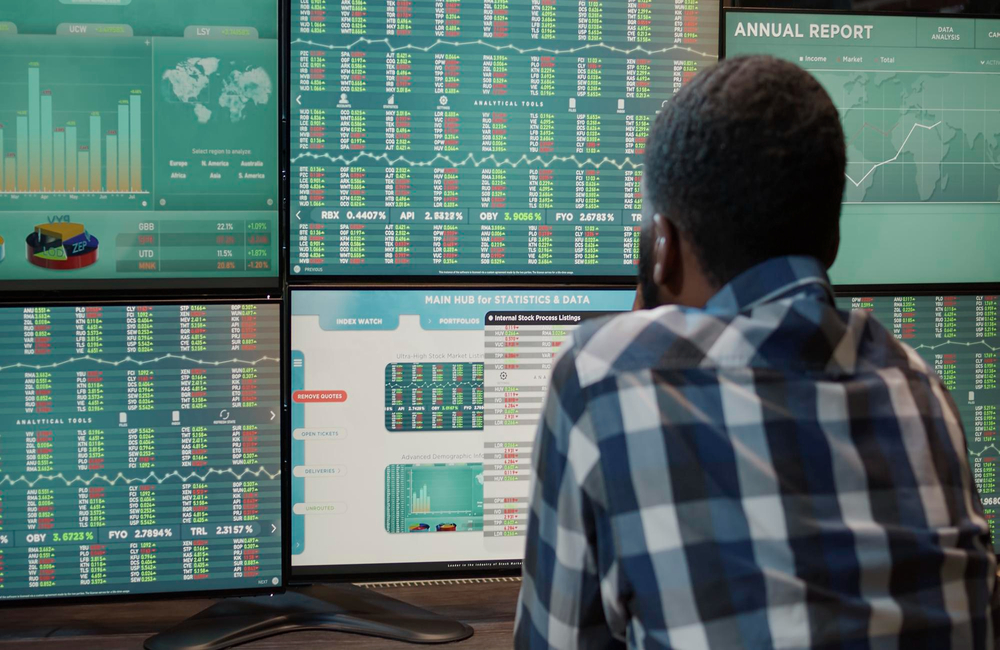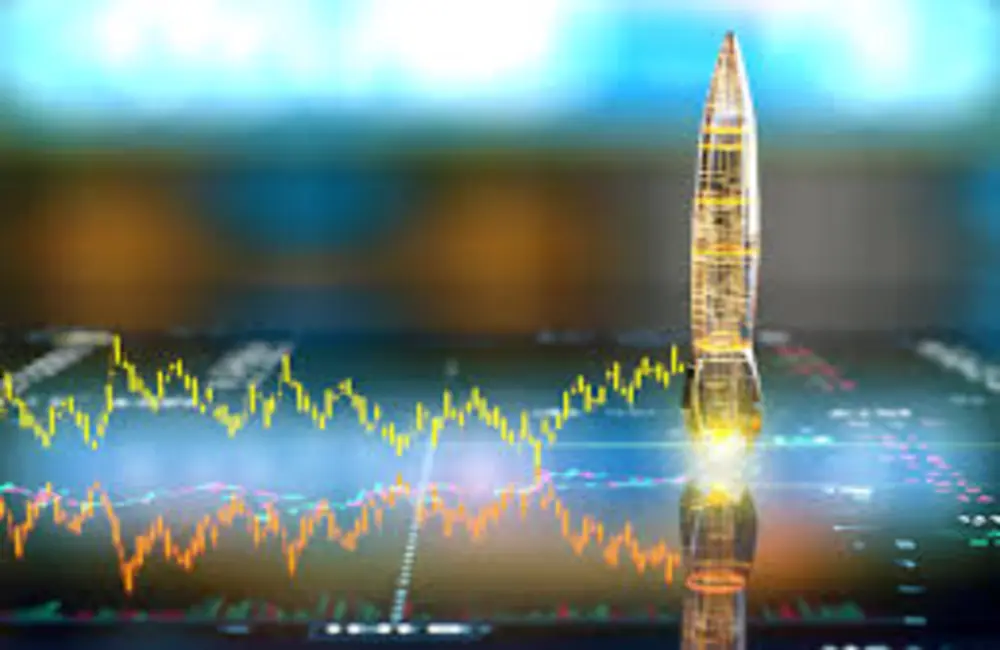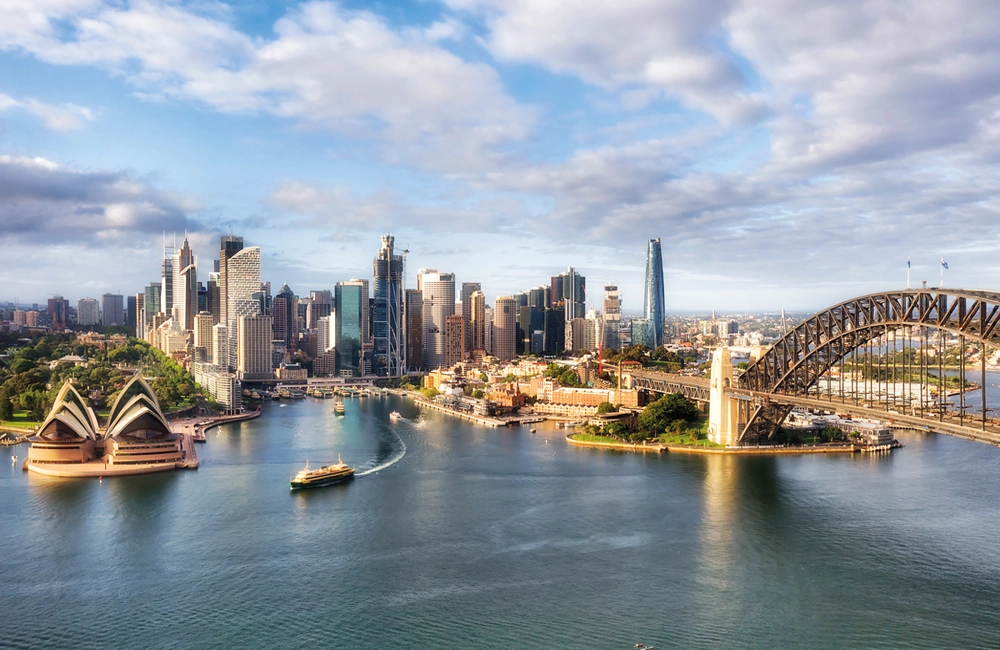ASX futures were up 50 points or 0.7 per cent at 7528 at 8.00 am on Tuesday, an indication that the day ahead could be positive. The tech-oriented Nasdaq Composite Index advanced 1.9% overnight. The S&P 500 added 0.8%. The Dow Jones Industrial Average climbed 0.3 percent.
US technology stocks gained on driving Twitter as Tesla founder Elon Musk became the social media company’s biggest shareholder. The stock rose as much as 31% during intraday trade before finishing up 27.2%. He Tweeted a poll in late March for followers to weigh in on whether the platform was protecting free speech. The most-used answer, by a wide margin, was 'no'.
Downtrodden US technology stocks have soared in the weeks following the Fed’s mid-March interest rate increase, the first of its kind since 2018. The Nasdaq Composite is now 12.2% higher since the 16 March announcement, narrowing those index losses since the start of 2023 to 7.1%.
Investors are also monitoring the Russia-Ukraine war, where the US and its European allies are discussing new penalties for alleged war crimes, including the killing of civilians. Brent Crude gained 3.0% to US$107.53.
“Considering all the uncertainty that still lies out there, I’m a little surprised by how strong the equity market is,” said Altaf Kassam, head of investment strategy for Europe, the Middle East and Africa at State Street Global Advisors. “This is inflation that is endemic in the long run, and that’s what we’re going to see: long-term implications for inflation, higher inflation long-term.”
Back home, the S&P/ASX 200 finished 0.3% higher at 7513.7, with resources stocks contributing to some of the climb.
Utilities and materials were standout sectors, with stocks up 1.1% and 1.0%, respectively. Iluka Resources rose 6.1 percent after it announced that its board had approved construction of a rare-earth refinery at its mine site at Eneabba in Western Australia.
Pendal closed up 18% after it announced it had received a non-binding, indicative takeover offer from Perpetual that valued Pendal at approximately A$2.4 billion. Perpetual was down 6.6% for the day, while fellow Australian fund managers Magellan and Platinum closed the day up 9.7% and 2.4% respectively.
The Reserve Bank board is in session today. Market participants are scanning the post-meeting statement, due at 2.30pm, for signs the Bank could be looking to speed up the timetable of interest rate increases.
In the commodities markets, iron ore gained 0.6 per cent to US$160.80 a tonne; gold futures were up 0.2 percent at $1937.20.
Bond markets started the week with modest moves after weeks of heavy selling. The yield of the US 10-Year Treasury Note grew to 2.40%. The yield on the Australian 10-year bond was steady at 2.83%. Yields rise when prices fall.
At 8.00 am however, lower than its previous close of 75.42. The WSJ Dollar Index, which measures the US dollar against 16 other currencies, climbed to 91.49.
Asia
Chinese stock markets were closed for a public holiday.
Hong Kong stocks closed sharply up following a rebound by Chinese tech megaliths as Beijing moved to give the country’s internet giants an opportunity to maintain their ADR listings with proposed rules changes. The Hang Seng Index surged 2.1% and the Hang Seng TECH Index soared 5.4%. The market also got a boost from drug makers after progress was seen on the development of a Covid-19 vaccine. The index's biggest gainers were CSPC Pharmaceutical, which rose 5.2%, and Meituan, which added 7.4%.
Japanese shares advanced, led by strengthening electronics and pharmaceutical stocks, on the view that a solid US economic rebound and a fading recent uptrend in commodity prices. Olympus Corp. rose 4.3% and Shionogi & Co. advanced 3.9%. The Nikkei Stock Average advanced 0.3%. Traders are still focused on the war in Ukraine and its effect on global trade.
Europe
European shares closed higher despite western countries mulling additional sanctions on Russia over its invasion of Ukraine. The pan-European Stoxx Europe 600 was up 0.8 percent, as shares of oil, gas and auto companies led the way higher.
Rhetoric over fresh sanctions on Russia doesn’t seem to be having much effect on equities as the market learns to look beyond the immediate blow to earnings, IG says. “The strength of Friday’s [US nonfarm] payrolls report remains a prop there too, if it has also given Federal Reserve policymakers some swagger to make a more serious assessment about a 50 basis point [interest rate] hike when they next gather.”
In London, the FTSE 100 was up 0.1%, with gains for utilities and insurers offsetting losses for oil majors, travel-related shares and Asia-focused financial stocks.
Among the biggest risers were Centrica, Severn Trent, Legal & General and Admiral, while IAG, InterContinental Hotels Group, Burberry, Standard Chartered and HSBC were at the top of the fallers. BP and Shell fall, but Brent crude rises 0.6%, to $105 a barrel. Fresnillo and Polymetal International rose after gold and silver prices gained.
“Markets continued to grind cautiously higher, as investors took comfort from a US economy that is increasingly showing an ability to withstand the likely deluge of interest rate rises ahead," it adds.
Russia’s benchmark MOEX index rose 0.2%. Foreigners are still not allowed to sell shares, averting a feared fire sale of Russian assets.
North America
US stocks rose Monday as investors bought up some of the technology stocks that have been under pressure to open 2023.
The tech-heavy Nasdaq Composite Index rose 1.9% and the S&P 500 gained 0.8%. The Dow Jones Industrial Average was up 0.3%.
The indexes have rallied in the past three weeks after the Federal Reserve increased interest rates for the first time since 2018 in an effort to control inflation. The S&P 500 and the Dow industrials remain roughly 5% below their January peak, and the Nasdaq is down about 10% from its November record.
Twitter shares led the S&P 500, sending them up $10.66, or 27 percent, to $49.97, after the chief executive of Tesla, Elon Musk, revealed that he owned a 9.2 percent stake in the social-media company as of March 14. Twitter gained $8.53 billion in market capitalization, the single biggest one-day gain in its history.
Mr. Musk polled his followers last month about whether they think that Twitter upholds free speech, to which he added, “The consequences of this poll will be important. Please vote carefully."
Tesla shares rose $60.86, or 5.6%, to $1,145.45.
Shares in other technology companies gained as well. Meta Platforms rose $9.04, or 4 percent, to $233.89. Netflix added $18.03, or 4.8 percent, to $391.50, and Alphabet climbed $56.42, or 2 percent, to $2,859.43. The three stocks are still all in the red for 2022.
Tech and other growth stocks have lost some of their luster as the Fed raises rates. Higher rates value corporate earnings more highly today, and so they tend to make shares of companies whose profits may come in the future less appealing.
Investor sentiment remains closely tied to the war in Ukraine, with many following the extent to which new reports of war crimes will add to pressure on the Biden administration and European allies to tighten sanctions on Russia. Analysts say momentum is building for the West to prohibit Russian oil. The reports come as peace talks between Kyiv and Moscow are underway and could make those discussions more complicated.
“Given all the uncertainty that continues to exist out there, I’m a little surprised at how strong the equity market is,” said Altaf Kassam, head of investment strategy for Europe, the Middle East and Africa at State Street Global Advisors. “The long-term effects of the conflict will raise prices for a long time to come.”
Oil prices increased as speculation grew about whether European countries will move faster away from Russian energy and whether Russian President Vladimir Putin will stop gas shipments to Europe over demands for payments in rubles. Meanwhile, European and U.S. plans to free oil from their reserves, along with lockdowns in Chinese cities, have dragged energy prices down from recent highs. Brent-crude futures, the global benchmark, rose $3.14 a barrel, or 3%, to $107.53.
A spike in oil and other raw materials prices has been a factor in the Fed’s plans to increase rates. But with the Fed beginning its lifting campaign, investors feel the removal of monetary stimulus and ultralow interest rates could endanger the equity rally.
“The market is looking at: Where is economic growth going to be? What is that going to do to corporate earnings and then how much wiggle room does the Fed have in terms of fighting inflation?” said James Ragan, director of wealth management research for the financial services firm D.A. Davidson Co.
In other corporate news, Starbucks shares dropped $3.4, or 3.7%, to $88.09, after the company said that it will suspend share repurchases, amounting to billions of dollars, a move that interim chief executive Howard Schultz said would give it capital to invest in cafes and employees. Lifestyle and culture company Hypebeast is listing stock in the US through a merger with the blank-check company Iron Spark I, whose shares rose 17 cents, or 1.7%, to $10.17.
As part of its efforts to expand its plug-in offerings, Hertz agreed to buy as many as 65,000 electric vehicles over five years from the Swedish automaker Polestar. Hertz shares jumped $2.26, or 11 percent, to $23.38.
In the bond market, the yield on the two-year Treasury note continued to be above that of the 10-year note Monday. In that case, the yield curve is considered inverted, which is often regarded as a recession predictor.
The yield on the benchmark 10-year Treasury note inched higher at 2.409%, the highest yield in around a week. Yields on two-year notes, which are more responsive to expectations of near-term interest rates, were at 2.426%. Bond prices fall and yields rise.
“We want to start thinking about where the puck is going and perhaps consider more defensive positioning, but again we’re not there [recession] yet and that’s because of this unusual environment,” said Emily Roland, the co-chief investment strategist at John Hancock Investment Management. The backdrop of high inflation, reopening of the economy and potentially slowing global growth can still bode well for stock gains, Ms. Roland said.

























